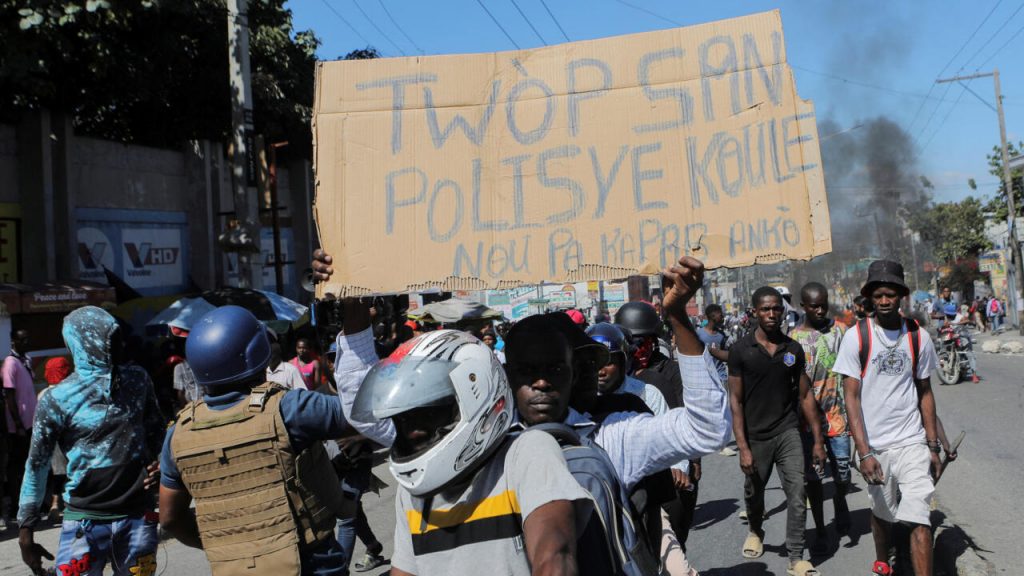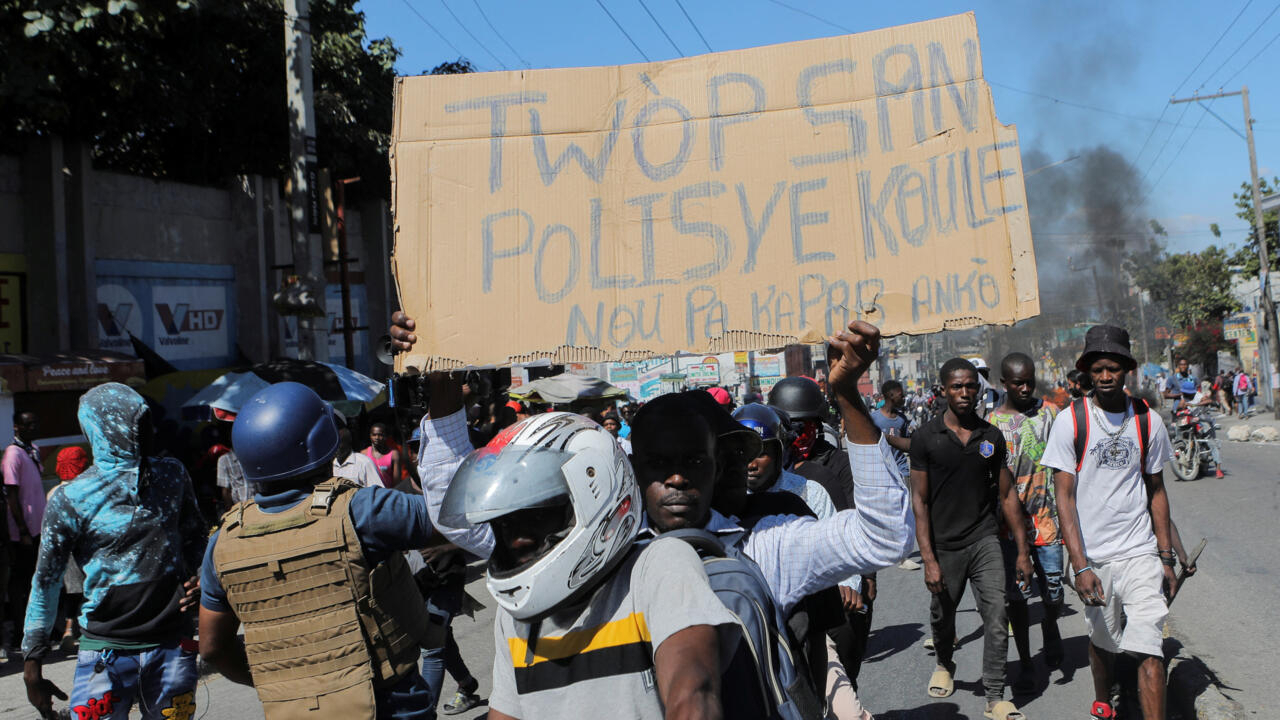
Haiti has been in a state of disarray due to gang violence and police-led protests in Port-au-Prince. The violence began to escalate after the assassination of President Jonevel Moise in 2021, leaving Haiti under the rule of Prime Minister Ariel Henry, who many view as an illegitimate ruler. The UN estimates that about 60% of Port-au-Prince is under gang control, and police deaths have gone up drastically over the past few weeks. As of late, people have taken to the streets, erecting blockades and staging armed protests, calling for government action to stop the violence. Haiti’s government is calling for military intervention from the UN, although as of now their requests have been denied. As the situation continues to become more dire, the United States, among other countries, has considered intervening.
Journalists Pierre Richard Luxama and Megan Janetsky of the Associated Press offer a neutral overview of the current situation in Haiti. Their primary focus in the article is the roots of the protests, as well as descriptions of said protests. The article describes the slew of police deaths due to the recent uptick in gang violence as of 2021. The journalists also describe the scenes at the protests, including burning tires and armed demonstrators, a majority of whom have served or currently serve the Haitian police. While the article is relatively objective, it does seem to sensationalize the violence of the current situation.
Nayyera Haq of MSNBC takes a different approach, offering a compelling opinion piece which argues that the state of affairs in Haiti is a result of United States policy. Haq states that “An original sin from the era of revolution continues to color U.S. policy toward Haiti”. This “original sin” that Haq is referring to occurred after the Haitian Revolution, when President Thomas Jefferson supported France’s demands that Hatians paid reparations to the French after the revolution. This event, Haq argues, drove Haiti into a severe debt that they have not been able to come back from. Since the country’s conception, Haiti has underwent relentless military intervention from the United States, which has, in Haq’s words, “[prevented] democratic systems from naturally taking root”. The instability that US military intervention has wrought has caused Hatians to flee, however these refugees are typically turned away at the United States border, forcing people to return to the chaos. Haiti is now calling for intervention from the United States in order to help with the current crisis, however, they have not received any assistance as of late.
These articles are drastically different from one another. The Associated Press article is an objective survey of the current events, whereas the MSNBC article is an opinion piece. Luxama and Janetsky of the Associated Press focus on the violence of the protests, as well as the recent events leading up to them. Nayyera Haq, on the other hand, delves into Haiti’s history in relation to the United States. Both approaches offer unique insight into the events that are underway in Haiti. While the additional analysis that the MSNBC article offers is compelling, it is also important to think about the events neutrally, which is why the Associated Press article is important as well.
Haiti is no stranger to the struggle for democracy. Since its establishment, the country has been subjected to a cycle of tyranny and revolution. This remains true for many Latin American countries. Intervention from other countries has left Haiti, as well as many other countries, in a state of political disarray. The current problem Haiti is facing is a prime example of how the lingering effects of colonization have made it more difficult for Latin American countries to maintain a stable government. The struggle to establish an effective, fair government has always been a prevalent struggle in Haiti and in Latin America as a whole.
Sources:
“UN aid chief: Gangs control about 60% of Haiti’s capital”, ABC News, Published December 8, 2022
“Haitian police rebels paralyzing Port-au-Prince”, Associated Press, Published January 26, 2023
